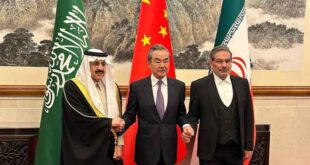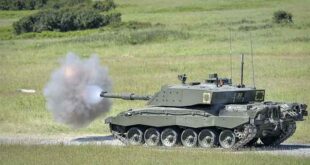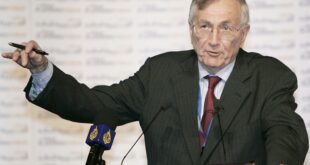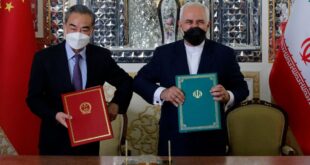The Sultanate of Oman’s longstanding ties to Iranian leaders position it to broker agreements between the United States and Iran, particularly the release of detained U.S. nationals.S. officials consider Oman, despite its close ties to Iran, as an integral component of U.S. strategy to deter Iranian aggression and secure the …
Read More »Saudi – Iran rapprochement: A chance for peace
The disintegration of the Soviet Union left the Middle East bereft of any alternatives to US leadership. Washington, a prisoner of American Exceptionalism and Manifest Destiny – the mythical doctrine used by the US to expand and extend its dominion, never proved itself up to the leadership role. The US …
Read More »The Long Arm of Washington Extends Into Africa’s Sahel
On March 16, 2023, U.S. Secretary of State Antony Blinken announced—during his visit to Niger—that the United States government will provide $150 million in aid to the Sahel region of Africa. This money, Blinken said, “will help provide life-saving support to refugees, asylum seekers, and others impacted by conflict and …
Read More »Palestinians Don’t Exist?
“Palestinians don’t exist.” (https://www.al-monitor.com/originals/2023/03/paris-israels-smotrich-says-palestinian-people-dont-exist-calls-them-fictitious) This was the recent statement by Israeli Finance Minister Bezalel Smotrich that made shocked headlines around the world. And, of course, he meant it as an affirmation of Jewish nationalism, the right of Israeli Jews to dispose of all Palestinians from the Jordan to the Sea. …
Read More »It Will Be Hard And Cost A Lot Of Blood For Ukraine To Kick Out Russians, Says Top U.S. General
The Russia-Ukraine war is unlikely to end on the battlefield and will instead come to a conclusion at a negotiating table, predicts a top U.S. general. A Business Insider report — Top U.S. general says it will be really hard and cost a lot of ‘blood and treasure’ for Ukraine …
Read More »Nord Stream sabotage was to undercut Germany, says Seymour Hersh
U.S. President Joe Biden ordered the sabotage of the Nord Stream pipelines because he was unhappy with the level of support provided by German Chancellor Olaf Scholz to Ukraine in its conflict with Russia, veteran investigative journalist Seymour Hersh has claimed. Hersh first accused Washington of destroying the key European …
Read More »The Growing Power of the China-Iran Alliance Thanks to the Biden Administration
The deal grants China significant rights over the Iran’s resources and help to Iran in increasing its oil and gas production. Leaked information revealed that one of the terms is that China will be investing nearly $400 billion in Iran’s oil, gas and petrochemicals industries. In return, China will get …
Read More »As Ukraine war drags on, NATO steps up war readiness
When two Russian fighter jets forced down an American surveillance drone above international waters a week ago, it was yet another incident driving home an urgent question for NATO planners: How will the alliance respond if Russia attacks a member the alliance has pledged to defend? In fact, NATO has …
Read More »Ukraine to invade? Russia plotting? Rumors fly in Moldova amid protests.
Crowds are surging through the streets of Chisinau, the capital city of tiny Moldova, as pro-Russian demonstrators complain about deteriorating living standards and creeping authoritarianism by officials. It’s just another way the war in neighboring Ukraine is destabilizing the post-Soviet region more broadly. But what makes Moldova’s situation especially dangerous …
Read More »Oil Geopolitics: Revisiting Petrodollar Recycling – Analysis
Background Global economic growth and prosperity in the last two centuries was fuelled largely by fossil fuels (coal, oil and natural gas). Oil in particular became fuel for defending national security, promoting economic activity and sustaining global trade after the first world war. Academic narratives such as ‘peak-oil’ and ‘energy …
Read More » Eurasia Press & News
Eurasia Press & News








